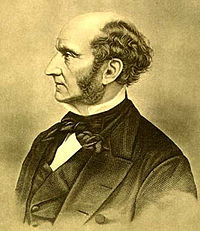Utilitarianism
J. Bentham |
J. S. Mill |
Henry Sidgwick |
R. M. Hare |
P. Singer
 |
A brother and sister like to kiss each other on the mouth. When nobody is around, they find a secret hiding place and kiss each other on the mouth, passionately.
Moral - universal, legitimately regulated
Contingenly moral (Nucci)
Moralistic vs. moral (Baron) - e.g., cloning
Objective? (moral realism)
Conventional - changeable
Social norms (Bicchieri) - cost to follow
Personal - matters of taste
A. If you had a child under 3, should you vaccinate your child?
B. Do you think that you would vaccinate your child?
A. Should you kill the one to save the two?
B. Do you think that you would kill the one to save the two?
C. Would you feel guiltier about your decision if you:
1. committed the murder;
2. did not commit the murder.
2. Moral education, advice, exhortation
3. Self-control, conscience, guilt feelings
Let us take #2 as primary.
J. Bentham |
J. S. Mill |
Henry Sidgwick |
R. M. Hare |
P. Singer
 |



A new viral disease is spreading rapidly in a region of Africa. Left alone, it will kill 100,000 people out of 1,000,000 in the region. X, a public health official, has two ways to prevent this. Both will stop the spread of the virus and prevent all these deaths:
A. Give all 1,000,000 a shot that makes them immune to the first disease. The shot will also cause, as a side effect, a second disease that will kill 100 people.
B. Give all 1,000,000 a shot that gives them another disease, which is incompatible with the first disease. The second disease will kill 100 people.
Which is worse?
A. Push a man off of a footbridge and in front of a train in order to cause the man to fall and be hit by the train, thereby slowing it and saving five people ahead on the tracks.
B. Pull a lever that redirects a trolley onto a side track in order to save five people ahead on the main track if, as a side-effect, pulling the lever drops a man off a footbridge and in front of the train on the side tracks, where he will be hit.
Normative model for all decisions that affect others: "not making them" is choosing the default
Better vs. worse - no natural concept of duty
Utility must be measurable and interpersonally comparable
Incentive, deterrence, responsibility (e.g., insanity defense)
Emotions, evil desires
Rights derivable but not fundamental (e.g., property)
Tastes: free market
The need for information
Now suppose that someone judges that, from a "social" perspective, it is better for 1,000,000*Q people to have outcome B than for 1,000,000*P people to have outcome A.
If we make decisions according to the social perspective, we make everyone worse off.
The fact that this can happen is relevant to normative theory. The fact that it is unlikely is not an excuse.
We can always take an ex-ante perspective: veil of ignorance.